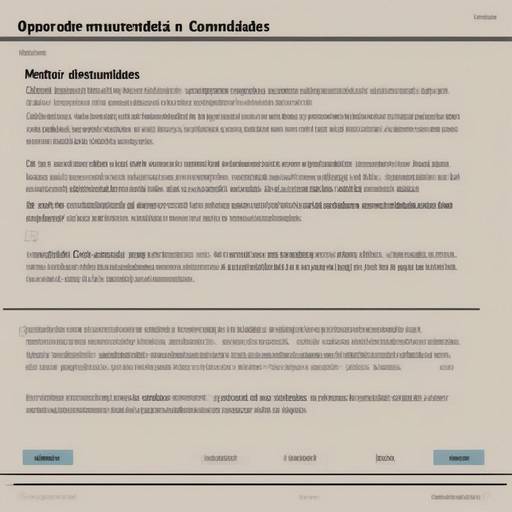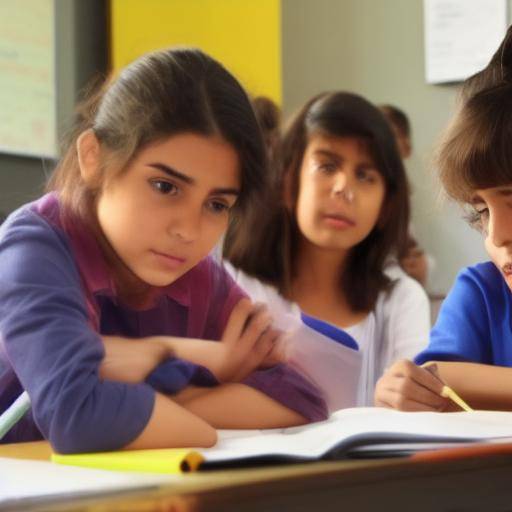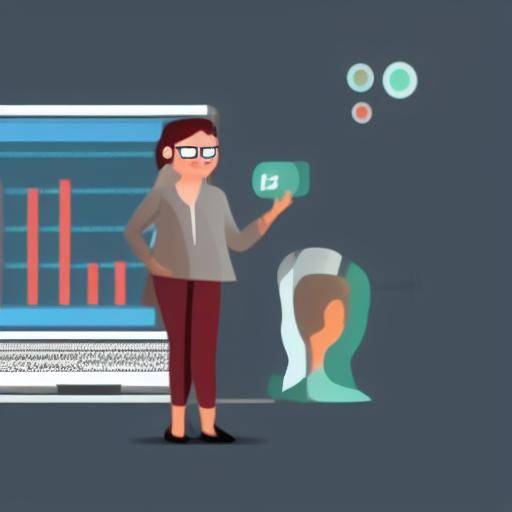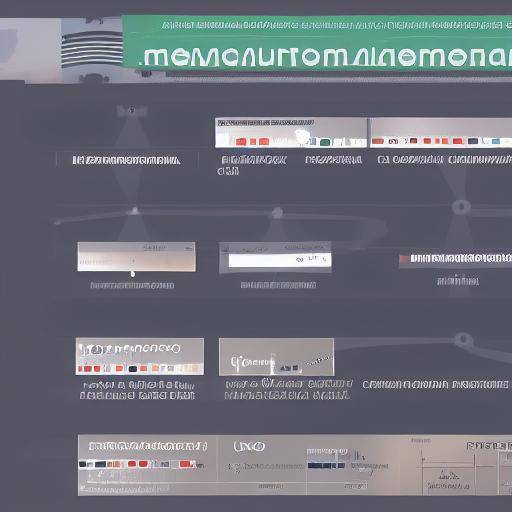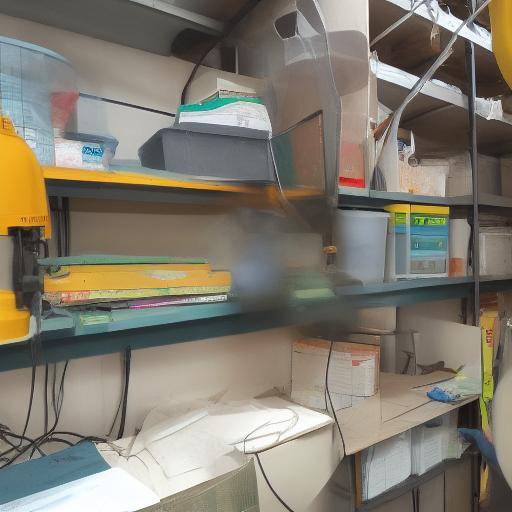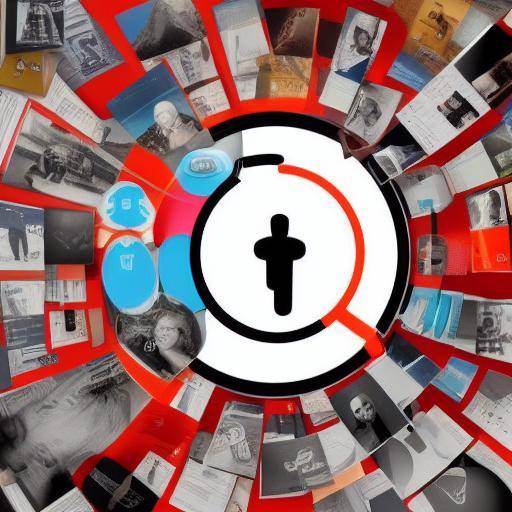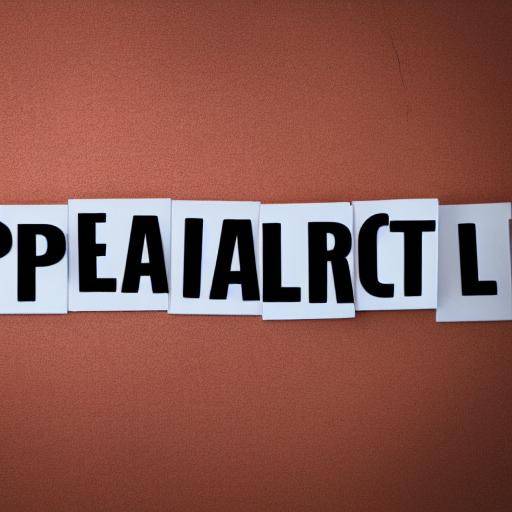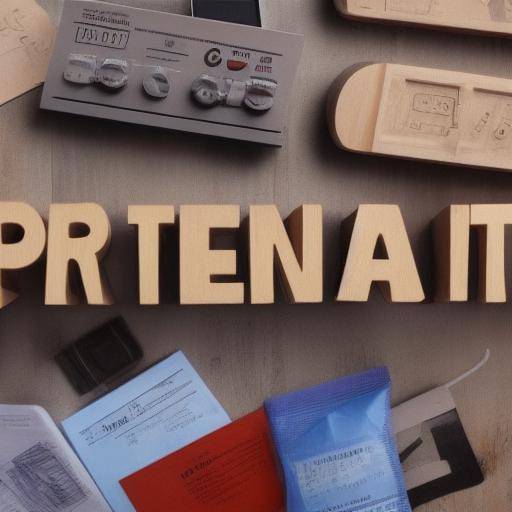
Self-confidence is a fundamental quality for personal growth and success in life. However, developing and maintaining self-confidence can be a challenge for many people. In this article, we will explore in depth the role of feedback in the development of self-confidence, providing insights, practical advice, and detailed analysis to help you strengthen this important skill.
Introduction
Self-confidence is belief in your own skills, judgment and power to face challenges and meet your goals. It is an essential aspect for personal and professional development, as it influences decision-making, the ability to face adverse situations, and the willingness to assume calculated risks. On the other hand, feedback, that is, the information we receive about our performance, behavior or results, plays a crucial role in how we perceive and develop our self-confidence.
In this article, we will address how feedback can be a powerful tool to strengthen self-confidence, as well as best practices to receive and process feedback constructively. Similarly, we will explore how the process of self-evaluation and constant learning through feedback can contribute significantly to personal and professional growth.
History and Background
The relationship between feedback and self-confidence has deep roots in psychology and the theory of human development. From the first theories of Albert Bandura's self-efficacy to the current research on self-confidence and self-esteem, it has been shown that proper feedback can be a determining factor in the formation of a person's self-image and self-assessment.
Behavioral and cognitive theories have also influenced the understanding of how feedback processes can affect the perception of competition and skills. Throughout history, numerous studies and experiments have been carried out to understand the impact of feedback on skills development and self-confidence, which has led to approaches and strategies that take advantage of feedback effectively.
Case Study: Study of the Theory of Self-Efficacy of Albert Bandura
Albert Bandura, a Canadian psychologist, is known for his theory of self-efficacy, which focuses on a person's belief in his ability to carry out specific actions that produce desired results. Bandura argues that self-confidence is not a stable feature, but can be developed through successful experiences, observation of successful models, and constructive feedback. Their research and experiments have demonstrated the significant influence of feedback on people's self-efficacy and self-confidence.
Analysis in Deep
Effective and constructive feedback can have a transformative impact on an individual's self-confidence. By receiving positive and useful feedback, people can strengthen their self-image, recognize their strengths, identify areas of improvement and experience significant personal growth. However, negative or inadequate feedback can undermine self-confidence and generate insecurity.
Self-assessment and ability to process feedback objectively and adaptively are key skills that contribute to the development of self-confidence. Learning to accept feedback openly, identify learning opportunities and seek continuous personal development are key aspects of the process of strengthening self-confidence.
Comprehensive review
At this point, it is important to consider how the feedback and development of self-confidence are applied in different contexts, whether in the field of work, education, sports or personnel. The ability to receive and give feedback effectively is an invaluable skill that can influence an individual's perception of self-confidence, as well as his ability to achieve success in various areas of life.
Best Practices: How to Process Constructive Wayfeedback
- Listen Activate: Pay attention to the feedback you receive, showing willingness to understand it instead of defending your point of view.
- Identifies Patterns: Note the recurring points in the feedback you receive to identify areas of improvement or strengths that you can enhance.
- Develop Resilience: Learn how to manage negative feedback, transforming it into personal and professional growth opportunities.
- Sets Objectives: Use feedback to set specific goals and actions that will allow you to continually improve.
Comparative analysis
Self-confidence and feedback, in the context of personal growth, are intrinsically linked. While feedback can fuel the process of building self-confidence, self-confidence also plays a crucial role in the way a person receives and uses feedback.
Both concepts require reflection, self-knowledge, and a proactive approach to personal development. By integrating feedback strategically and strengthening self-confidence, the door opens to a continuous improvement cycle.
Practical Case: The Synergy between Self-Confidence and Feedback in a Corporate Environment
In working environments, effective feedback can boost the professional development of employees while strengthening their self-confidence. Employees with high self-confidence tend to receive feedback better, which in turn allows them to experience continuous growth and contribute more significantly to the success of the organization.
Practical Tips and Accessible Recommendations
Here are some practical recommendations to develop self-confidence through feedback:
- Encourages a Constructive Feedback Environment: Promote the culture of open and constructive feedback in your working or personal environment.
- Establish Targets and Develop a Plan of Action: Use feedback received to set specific targets and develop an action plan to improve in identified areas.
- Look for Mentoria and Coaching: Look for mentors or coaches who can provide you with honest feedback and support in your development.
- Celebrate your Achievements: Recognize and celebrate your achievements and progress, thus strengthening your self-confidence.
Ideas and Inspiration of Industry Experts
Experts in psychology, leadership, and personal development provide valuable insights into the relationship between self-confidence and feedback, highlighting the importance of integrating both on the path to growth and success.
Case Studies and Practical Applications
Case studies and actual examples provide clarity on how effective feedback can influence the development of self-confidence and vice versa, as well as show practical applications in various contexts.
Future Trends and Predictions
Emerging trends in the field of personal development and talent management point to a more comprehensive and conscious approach to integrating feedback and self-confidence into the working and educational environments.
Conclusions
In conclusion, effective feedback is a fundamental component in the development of self-confidence. When processing feedback constructively and using it as a catalyst for personal and professional growth, a path to self-realization and achieving significant goals is established.
FAQs
1. Can negative feedback negatively affect my self-confidence?
How to process negative feedback can have a significant impact on your self-confidence. If approached constructively and used as a learning opportunity, negative feedback can be a catalyst for the growth and strengthening of self-confidence.
2. How can I use feedback to strengthen my self-confidence?
By processing feedback objectively, identifying areas of improvement, setting specific goals and taking measures to improve, you can use feedback as a tool to strengthen your self-confidence.
3. Is it important to request feedback proactively?
Yes, requesting feedback proactively demonstrates your willingness to learn and grow. By actively seeking feedback, you can improve your performance and strengthen your self-confidence.
4. What role does self-confidence play in the way I receive and process feedback?
Self-confidence can influence how you receive and process feedback. A high self-confidence can lead you to receiving feedback in a more open and constructive way, which in turn can help strengthen your self-image and confidence in your abilities.
5. How can I help others develop their self-confidence through feedback?
Promoting a constructive feedback environment, providing specific and encouraging feedback, and highlighting the achievements and strengths of others, you can contribute to strengthening the self-confidence of those around you.
6. What role does feedback play in personal and professional development?
Feedback provides people with valuable information about their performance and behavior, which in turn can help them identify areas of improvement, enhance their strengths and reach their full potential both in their personal and professional development.
In short, developing self-confidence through feedback is a continuous process that requires self-knowledge, adaptive capacity and willingness to learn and grow. By strategically understanding and implementing feedback, we can forge a path to meaningful personal growth and solid self-confidence that will enable us to achieve our goals and aspirations with determination and security. Join this journey and discover the transforming power of feedback in your self-confidence and personal development!



















